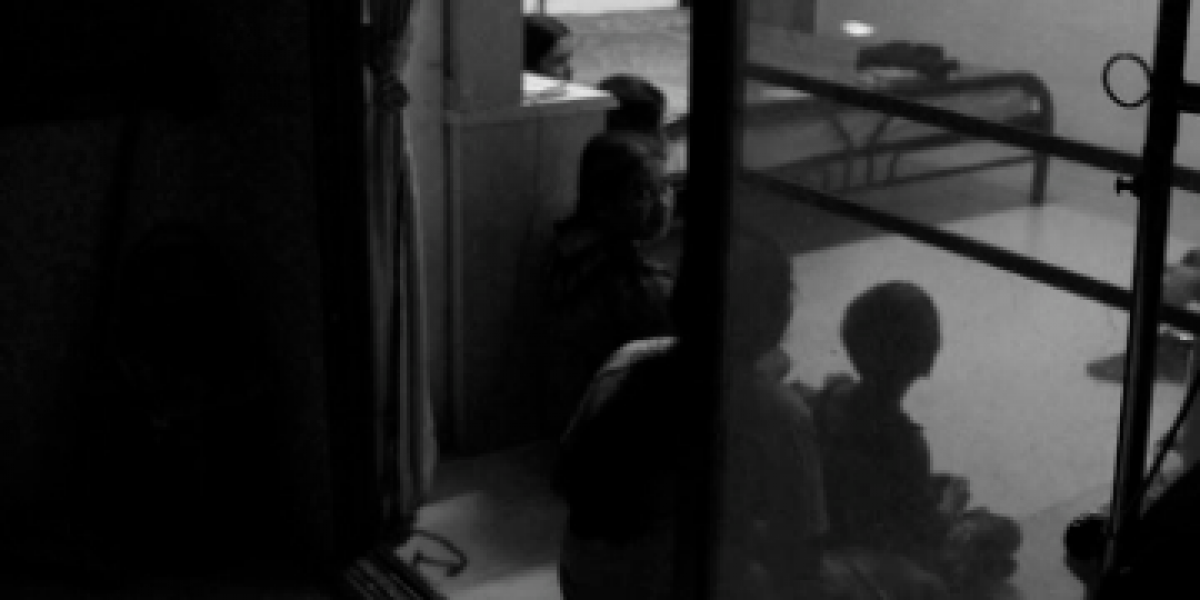Thailand: Living day to day in limbo as a Sri Lankan refugee
13 January 2011|Molly Mullen, regional assistant communications officer, JRS Asia Pacific

Bangkok, 12 January, 2011 – A family of six sits in their Bangkok apartment, talking about field trips, exams and homework. The oldest daughter smiles as she talks about college brochures.
With pressure for foreign governments to keep people form arriving in their country by boat, Sri Lankans in Thailand have a very real fear of arrest and detainment.
Both daughters, 14 and 17, have scholarships to a prestigious high school and have dreams about someday going through college to be a computer engineer and a doctor, respectively.
But then the gravity of their situation seeps into the conversation, as it always does.
“I hear my classmates talking about going shopping or to the park. Even if I was invited to go with them, I can’t. With no visa, I can’t do anything,” the oldest daughter explained in nearly perfect English.
Fear of arrest
This family, all recognised refugees from Sri Lanka, may have those dreams evaporate if they are not resettled soon. For four years they have lived in fear of being arrested by Thai immigration authorities and detained indefinitely for being undocumented migrants.
Since a boat carrying 490 Sri Lankans landed in Canada on 13 August, Sri Lankans in Bangkok are aware that they are targets for immigration police. Since August, as many as 150 Sri Lankans have been arrested at a time. For this family, that would mean these girls would have to end their educations and give up their dreams of college.
“We were afraid when we heard about the arrests. We don’t go out anymore”, the oldest daughter said.
“We always stay in the room. We are afraid if the police see us, they will arrest us. Any noise we hear from the street, a Jeep or anything, we think it’s the police. We lock our door, turn off the lights and stay quiet. We are always living in fear”.
Their studio apartment — barely large enough for one bed, a desk and a dressing table – has become a prison, they say.
Allegedly, pressure to arrest Sri Lankans is from Canadian officials. Since boats of Sri Lankans arrived, Canadian authorities have purportedly tried to curb numbers of those seeking asylum. There is now legislation in Canada that, if passed, nulls an asylum request made by a person who arrived by boat.
People who arrive by boat to seek asylum take risks. They sometimes give their savings to agents they don’t know, and board an unsafe vessel with an unknown destination. When they arrive in Canada, the asylum seekers along with their agents are treated as criminals, according to new legislation on human smuggling and trafficking.
“I know some people who took a boat to Canada”, said one Sri Lankan man, whose wife was arrested and has been detained for months.
“I support them getting to safety, but we cannot do that. Most of us living here can barely afford to keep an apartment. We cannot afford to pay for the boat trip”.
Canadian influence
Canadian immigration officials are defending their legislation – which infringes on humanitarian law – by saying that they are cracking down on dangerous people smugglers and keeping Canada safe from terrorists, because some people who arrived on that September boat had affiliations to the former rebel group, the Liberation Tigers of Tamil Eelam (LTTE), considered a terrorist organisation in Canada.
Thai immigration police detained two former LTTE members and their wives for more than three years. They cannot leave the detention centre. They cannot return to Sri Lanka because their former military affiliations have made them targets for assassination. And they cannot be resettled because they are considered terrorists.
“I joined the LTTE during peace time when I was 15. I did not know who they were. It was like playing”, said one man who was never involved in combat.
“Now they say we are terrorists. But I am no terrorist. We are not terrorists. We are not animals. We are human beings. We just want life.”
Whether in their homes or in detention, Sri Lankans in Thailand consider themselves prisoners, unable to go to school safely, start families or walk the streets. Each hopes for resettlement, but is aware of the possibility of waiting years only to be rejected.
“When we came here from Sri Lanka, we did not know this would be our lives”, the mother of the two teenage daughters said, crying.
“We wanted a better future for our children. We never thought this would be our experience. It hurts my heart every day”.


